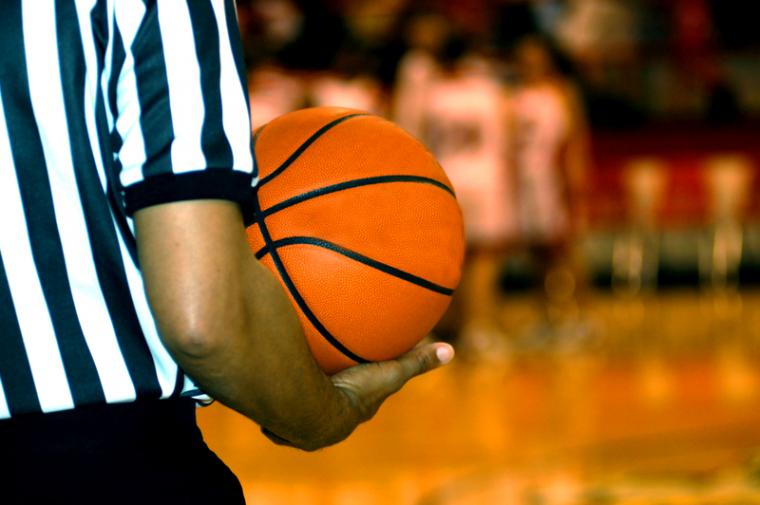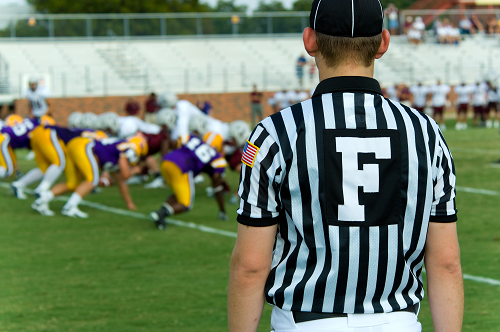

Within weeks of each other, multiple news accounts have emerged that highlight a growing – and disturbing – trend in youth sports.
First, the National Federation of State High School Associations (NFHS) noted that there has been a net loss of about 50,000 sports officials for youth events since the close of the 2019 academic year. In fact, the issue is so severe that NFHS has set up a consortium to study the issue and to try to develop solutions.
Right on the heels of that announcement came the news that continued incidents of poor parent behavior had been the direct cause of the closure of a prominent New York youth basketball league. The most recent, taking place just before Valentine’s Day, had tolled the death knell for the program.
A day later, in Pennsylvania, a player attacked a referee and subsequently received a lifetime ban from the U.S. Premier Hockey League, one of the highest levels of youth hockey in the country.Additional incidents in the news have included:
- The mayor of a city was ejected from his daughter’s high school basketball game after threatening a referee.
- A volleyball official was followed off the court by a coach who was shouting obscenities.
- A referee was assaulted and knocked unconscious during a basketball tourname.
- In Yuba City, California, a parent who worked as a school guidance counselor was arrested after he was found to have sent threatening and explicity e-mails to coaches at another school because he was angry about his children's playing time.
Athletic Business reported on the situation in the New York basketball league, citing a message from officials to parents and athletes: “Due to the altercation that occurred on Saturday (Feb. 12, 2022), as well as, some of the other issues the league has had, the district has decided to cancel the remainder of the season for both leagues,” City of Rome Parks and Recreation Department deputy director Ryan Hickey said in a statement that was sent to those associated with the leagues, according to The Rome Sentinel. “I am sorry but basketball is done. No more practices or games. Thanks to all for giving your time and effort. Youth sports should be sacred to a community. It is so important to our children and their experience growing up. I think we have lost our way a little. We have to somehow come back together and remember we are all in this together.”
It's sad but not surprising. Dana Pappas, who has been on board as NFHS director of officiating services since last summer, said that the problem of unsportsmanlike behavior by students, coaches, parents and other fans contributed to many officials’ decisions.
Many parents see calls they disagree with as a call to action, rather than a life lesson – and react with aggression, thinking they can change the officials’ decision-making process. (Spoiler: they can’t).
Richard Weissbourd, a Harvard educator, has done research into the psychological ramifications of the phenomenon of poor parent behavior at sports events, and says an inability to understand the framework of sports, combined with a winners-only culture, are to blame.
“Some people are feeling more Darwinian, like this is a survival-of-the-fittest kind of contest, and there isn’t a sense of commitment to the larger whole.”
Additionally, he noted, social media is to blame, since it is there that “we have reinforced the tendency to demean and degrade people whom we disagree with — that’s too often the nature of our public discourse now. It’s been legitimized and normalized in ways that are concerning. I think we used to live in a culture where there was much more of an expectation that you showed respect even when it was hard, when our notion of morality meant doing things that are hard like thanking the referee even when you didn’t feel like thanking them. I’m concerned that many parents just don’t have the inclination. They don’t think about doing things that are hard as a way of modeling for their kids. There’s also this allergy to losing and to failure that we have in the culture.”
And of course, says NFHS, the pandemic didn’t help either. Many longtime officials retired over the course of 2020 and younger officials simply are not interested in putting up with the adversity that now faces referees and umpires nationwide.
After hearing the same message – shortage of officials – from every level of sport in the country, the NFHS is orchestrating and leading a first-ever National Officials Consortium Summit in April to collectively address the concerns.
“What we discovered was that everyone was working on the same problem, but there is no strategic collaboration between the entities,” Pappas said. “We understand that everybody is reliant upon our pipeline at the high school level. So, we want to work together to replenish and keep that pipeline healthy and figure out ways that we can do the work collectively instead of everyone doing it on their own.”
In addition to the NCAA, more than 30 national-level sports organizations have committed to be a part of the consortium hosted by the NFHS in Indianapolis April 12-14. Various youth, high school, college and professional sports organizations, as well as national governing bodies for Olympic sports, have expressed an interest in coming together to address the growing shortage of officials.
Another of the NFHS strategies is to make parents and former student athletes part of the solution, rather than part of the problem by attemtping recruit more individuals to officiating, including current high school athletes and current parents of athletes.
“Many sport parents have been around the sport for 18 years, and then their kid graduates, so we’re trying to reach out to those individuals to get them to stay involved on the field, on the court or on the mat as officials,” Pappas said. “Kids coming out of high school think they have two options – to play sports or to coach sports. They forget about the people who are officiating their games. So, how do we make officiating something that is at the forefront of their minds? When they are leaving high school or leaving college, they need to understand that there is an entire career path they could follow in the world of high school officiating.”

